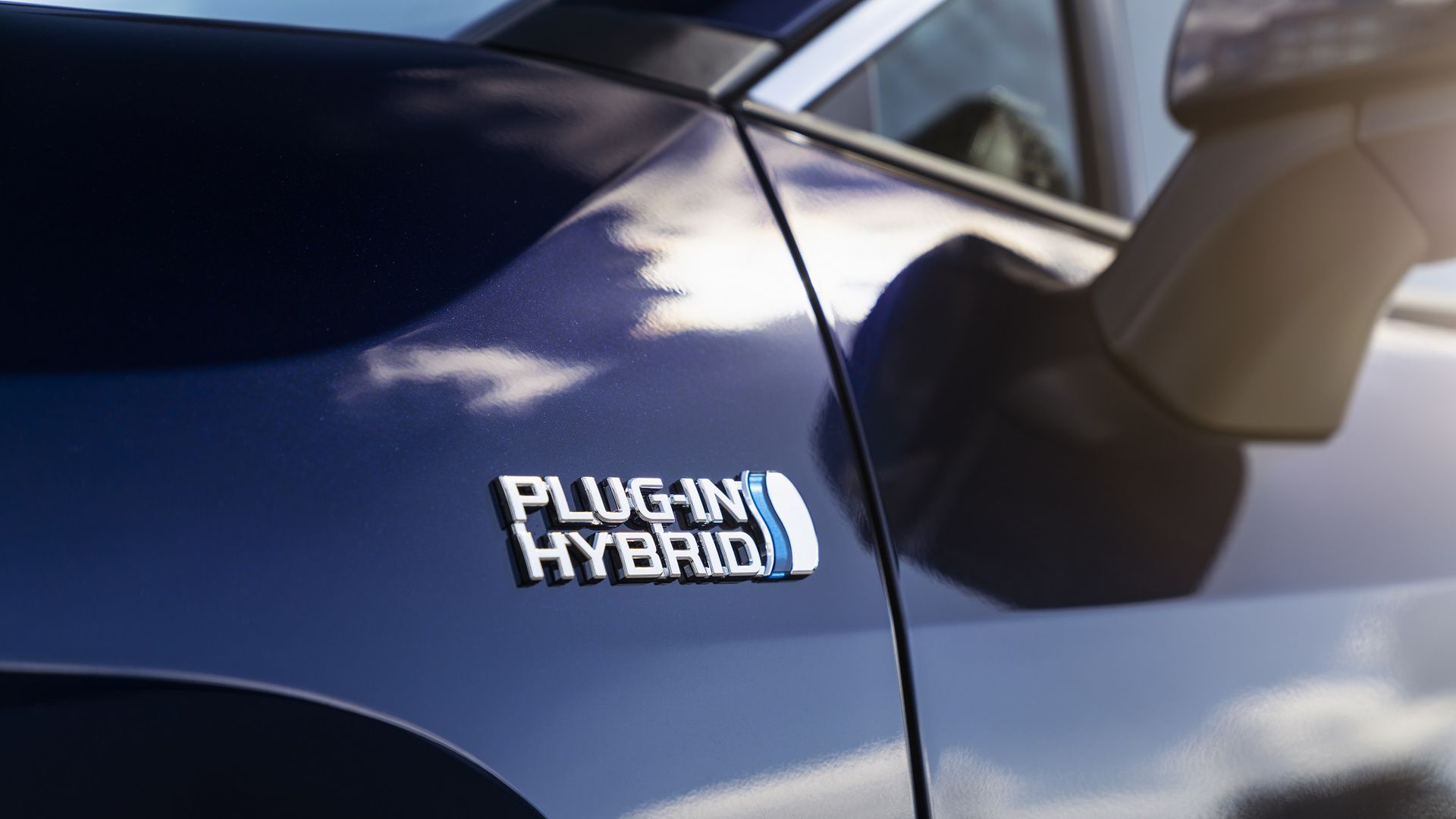Feb 19, 2021 - Economy
Toyota still bets on hybrids despite competitors' focus on EVs
Add Axios as your preferred source to
see more of our stories on Google.

Toyota's best-selling vehicle, the RAV4, is available as a plug-in hybrid, which goes 42 miles on battery alone. Photo: Toyota
